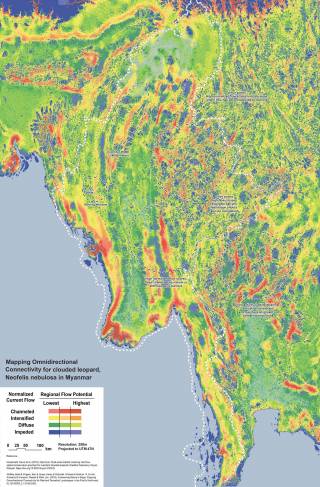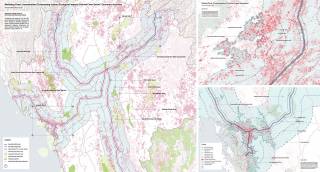Course abstract:
"Landscape as Development" is a technology-theory seminar that surveys the epistemological and practical gap between ecological planning (as construed by landscape architecture) and biological conservation. This course is designed to facilitate critical reflection on the selection and appropriation of secondary scientific research for environmental planning practice and policy. The course's reading list is a mix of: a) foundational texts in landscape architecture, landscape planning, and landscape ecology; b) novel papers in spatial ecology; and c) case-based literature from science and technology studies (STS), land change science, and political ecology. The course focuses equally on theory, bridging between the design disciplines and the axioms, problem framing, and project types of the above conservation-related fields, and building students' technical geospatial skill sets for working within complex and contested natures. Students' term projects for the course introduce them to how landscape ecologists and landscape scientists are engaging a major ongoing international development plan, this year focusing on the China-Myanmar Economic Corridor (CMEC). Students develop an understanding of this corridor as an assemblage of pre-BRI (Belt and Road Initiative) development projects and studies and, by the end of the course sequence, suggest ways to critically assess plans for its improvement and conservation.







